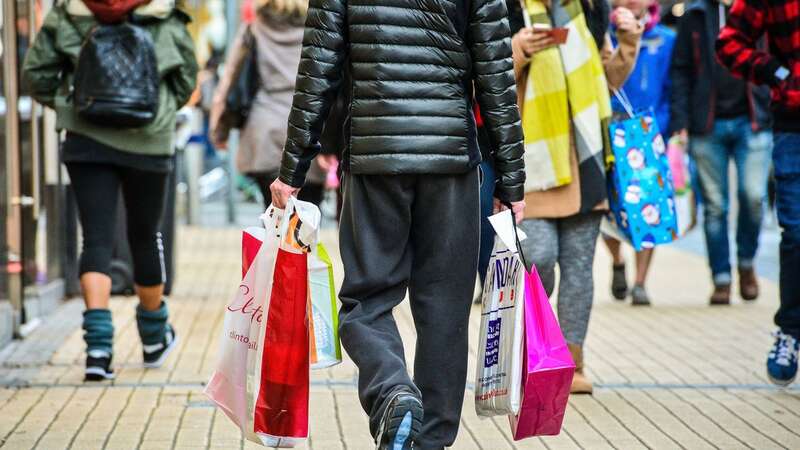
Retailers had a 'lacklustre' January as shoppers faced a third year of cost-of-living pressures, new figures reveal.
Inflation easing and weak consumer demand saw UK retail sales rise by just 1.2%, a drop from the 4.2% growth seen in the same month in 2023, according to the British Retail Consortium (BRC)-KPMG Retail Sales Monitor.
Food sales were up 6.3% year on year for the quarter, compared with an 8% growth last January. However, non-food sales fell by 1.8% year on year over the three months to January, against a growth of 2.9% in January 2023.
BRC chief executive Helen Dickinson said: "While the January sales helped to boost spending in the first two weeks, this did not sustain throughout the month." She added that larger purchases like furniture, household appliances and electricals remained weak due to the ongoing high cost of living.
She also noted that milder temperatures meant clothing sales performed poorly, particularly winter clothing and footwear. However, it was better news for health and beauty products, which continued to sell extremely well.
 Britain faces the worst recession among G7 partners, economists predict
Britain faces the worst recession among G7 partners, economists predict
Linda Ellett, UK head of leisure and retail consumer markets at KPMG, said: "It may be a new year, but the hangover of low consumer confidence remains, with retail sales growing by a lacklustre 1.7% on the high street, and online operators seeing yet another month of negative sales performance. Health and beauty purchasing continued to drive sales both on the high street and online, whilst sunseekers and consumers with healthy resolutions front of mind gave a boost to sports and travel equipment sales, which were up over 4% year on year."
"The extraordinary weather conditions across large parts of the country did little to encourage shoppers out on to the high street, whilst continued industrial action on the rail network was unhelpful for city centre locations. Whilst there are some positive signs that mortgage rates are starting to fall and stabilise, and shop inflation has fallen to its lowest level in over a year, the feel-good factor has yet to materialise at the tills."
Separate figures from Barclays show card spending grew just 3.1% year on year in January as consumers recovered from the festive period. Spending on non-essential items increased by 2.6% as 43% of consumers said they were planning to cut down on discretionary spending due to rising household bills.
However spending on takeaways and fast food was up 5.5% on last January, while spending on digital content and subscriptions rose 11.4%. More shoppers opted to browse the post-Christmas sales from the comfort of their homes instead of the high street in January, with bricks and mortar spending on Boxing Day down 10.9% year on year.
While 88% of consumers are still worried about rising household bills, Barclays found that overall, the nation is feeling more optimistic. Confidence in both their household finances and ability to live within their means has reached its highest point since November 2021 at 70% and 74% respectively.
Karen Johnson, the bank's head of retail, said: "After a December filled with festive indulgence, Britons took on a more frugal approach in January, choosing to stay at home more often to save money and shelter from the winter weather. This meant that online retail performed strongly, as shoppers browsed the sales from the comfort of their sofas, while demand for digital content and takeaways remained robust, boosted by the release of popular new film and TV releases such as The Traitors and Fool Me Once."
"While this shift in behaviour resulted in subdued growth for hospitality and leisure, it's encouraging that confidence is improving, with consumers remaining resilient and finding savvy ways to manage their finances." she concluded.
The findings were based on a survey by Opinium, which interviewed 2,000 UK adults between January 19 and 23.
* An AI tool was used to add an extra layer to the editing process for this story. You can report any errors to webhomepage@mirror.co.uk
Read more similar news:
Comments:
comments powered by Disqus

































